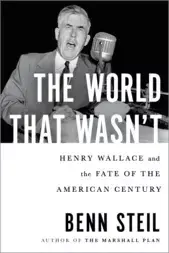
Trump's Foreign Policies Are Better Than They Seem

President Donald J. Trump’s actions have often been rash, ignorant, and chaotic. Yet some of his individual foreign policies are substantially better than his opponents assert.
April 2019 , 104 Pages
- Council Special Report
- Concise policy briefs that provide timely responses to developing crises or contributions to current policy dilemmas.
President Donald J. Trump “is not given sufficient credit for his foreign policies,” writes Robert D. Blackwill, Henry A. Kissinger senior fellow for U.S. foreign policy at the Council on Foreign Relations. “All the chaos generated by this flawed president does produce actual policies, the substance of which in many cases is likely to be more consequential than the ways by which the policies arrived and the character of the man who formulated them,” asserts Blackwill. “What matters most is the effectiveness of U.S. policy over time and its consistency with U.S. national interests, not the personal qualities of its leaders.”
In a new Council Special Report, Trump’s Foreign Policies Are Better Than They Seem, Blackwill assesses the Trump administration’s foreign policy—including the United States’ ties with allies, relations with China and Russia, and policies toward the Middle East, North Korea, Venezuela, trade, and climate change—halfway through the president’s first term. The author assigns a letter grade to each of President Trump’s major foreign policies, as well as a final grade for his overall foreign policy, and concludes that some of Trump’s “individual foreign policies are substantially better than his opponents assert.”
More on:
The report, however, also acknowledges President Trump’s significant foreign policy shortcomings. According to Blackwill, the president “conveys foreign policy failures as successes and minor accomplishments as cosmic victories. He makes important decisions against the advice of his cabinet advisors—if he consults them at all. He has had unprecedented turnover in senior foreign and defense policy positions and, at this writing, has had three national security advisors. In sum, there is no steady interagency decision-making process within the administration because the president apparently does not believe that he needs one.”
Nevertheless, Blackwill attempts to look beyond headlines that focus on the president’s “rash, ignorant, and chaotic” actions to provide a comprehensive analysis of his individual foreign policies, noting that “history teaches us that flawed individuals and policy processes sometimes produce successful results.”
Professors: To request an exam copy, contact publications@cfr.org. Please include your university and course name.
Bookstores: To order bulk copies, please contact Ingram. Visit https://ipage.ingrambook.com, call 800.234.6737, or email orders@ingrambook.com. Include ISBN: 978-0-87609-763-2.
More on:
 Online Store
Online Store

